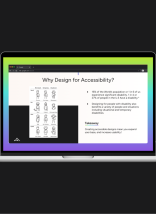
By now we have all heard about the Apple iPhone. Since its release in 2007, it has dominated the smartphone market with over 30 million units sold worldwide. Both RIM (makers of the Blackberry) and Palm have been working hard in their R&D departments trying to create a product that will trump the all-in-one from Apple. They aren’t the only ones, even companies like Samsung and LG have entered the competition. But all of this competition is good, especially since it can only force Apple and others to continue to improve on their products.
Satisfaction Guaranteed?
The Apple iPhone has brought back the hope we gave up on the Mobile Web years ago. Lets face it, it feels great to browse the web on the iPhone. ChangeWave reported that the Apple iPhone 3GS had a 99% satisfaction rate. Even the earlier models — having a 73% satisfaction rate — outperformed competitors in usability testing.
While viewing websites are relatively easy on the iPhone and other similar devices, it can be much better. Sites that do not have mobile-ready alternatives always end up getting scaled down and this makes it difficult for the end user to properly navigate through the site. End result – higher frustration levels from users. If people can’t read the site or navigate it effortlessly, they will leave and move on. This results in lost opportunities for businesses.
The End of the PC Era?
The mobile web is gaining attraction and more people are using their smartphones to access the web each and every day. People aren’t sitting at their desks anymore using desktop or laptop computers. They are on the go. Teenagers today are setting the example as they text message, tweet, blog, or whatever else on their mobile devices. The web is conveniently there for them to access. RBC analyst Mike Abramsky estimated in a report that by 2011, shipments of both PCs and smartphones will be roughly 400 million per year. What is more staggering is that by 2011, smartphone shipments will surpass PC shipments. Designers and developers need to make sure that their sites are as usable and accessible as possible. This starts with optimization.
Performance Matters!
In my research, I found that by optimizing mobile websites for devices such as the Apple iPhone you can tremendously increase performance. The following is an excerpt from the abstract in my thesis:
User performance on the optimized mobile websites was enhanced by as much as 550% compared to performance on the non-optimized sites. Furthermore, user ratings of usability were strongly correlated with their actual performance of specified tasks. Based on these findings, it was concluded that optimization of websites for mobile web use can greatly enhance usability and reduce frustration from users, allowing organizations to better reach the growing mobile audience.
Source: Identifying and Applying De Facto Standards in Mobile Web Design Using the Apple iPhone, Mark Riggan
Companies are beginning to realize the potential that the mobile web has on their audience, due to the popularity of devices such as the iPhone. However, there are still a lot of websites out there that ignore the mobile market and allow the devices to render their sites as is — which in most cases will be scaled down. Speaking from personal experience, I get tired of having to zoom in and out of websites in order to review information. This of course is implying that I have the patience to wait for the site to load entirely.
And So I Conclude…
Designers unite! Let clients know the potential in mobile websites. The Apple iPhone is only going to get better as well as the other competitors such as Blackberry, Palm, and Google. Learning how to design websites for different types of devices will only strengthen us as a whole.
So what are your thoughts on the mobile web? Does the iPhone make you want to surf the mobile web more? Can you imagine a world where desktop computers are fading away? Check the facts…the future of the web lies in the palm of your hand.









